Dairy drinks feel the chill of recession
Dairy may be up in value thanks to rising costs, but some sub-categories continue to struggle. Yoghurt drinks fell in volume and value again - albeit at a slower pace. Sales dipped 2.6% this year to £242.2m compared with a 10% drop in 2007, while volume sales were down 8.3% as shoppers started to cut back on what they saw as discretionary spend.
"The economic climate and evidence of consumers cutting back, mostly on non-essential items, means yoghurt drinks may not even make it on to shopping lists anymore," says Vivien Russell, dairy drinks buyer at Booths.
The fall in value reflects a move away from aggressive promotional activity, including buy-one-get-one-free, which has been heavily relied upon in the category in the past, adds Russell.
Unilever's Flora Pro-activ brand was one of the products to suffer from the lack of promotional activity. "We have seen huge declines on this brand as shoppers have not been loyal when the offers have finished," says Russell.
As a result, it was one of the worst-performing yoghurt drink brands in this year's survey, sales falling 40.1% to £10.6m, despite Unilever's £15m advertising support for the brand.
The steep decline resulted in the brand dropping one place to the sixth spot in this year's table. Consumer confusion about the benefits of functional yoghurt drinks has also hit sales of Müller's Vitality.
Sales will continue to suffer as recession hits higher-priced products, predicts Sara Newton, category buyer at The Co-operative Group. "Purse strings are tightening and, because of this, we will closely monitor the performance of active health drinks in the first quarter of 2009."
Müller relaunched Vitality in July this year, removing its omega-3 ingredient just three years after adding it. It decided to focus on the brand's prebiotic and probiotic content, upping the content of both ingredients in the new-recipe drinks.
The move, which was backed with a £2.5m marketing push, followed consumer feedback that suggested shoppers were more concerned about digestive health than brain health, the company says.
Despite all this, sales of Müller Vitality, which occupies the second spot in the top 10 after Actimel, are down 8.8% to £33m.
Sales were fuelled by strong TV advertising and by the brand "sticking to its strategy of offering better value on multiple purchases. It is now vital to the total category and the brand that it keeps knuckling down in the next year," Newton says. "As the market leader, Actimel must, as a minimum, maintain its above-the-line spending next year for the overall category to stay at the forefront of customers' minds and therefore firmly in their baskets."
The children's sector has also underperformed and several of the big brands turned in dismal performances. Sales of Nestlé's Munch Bunch are down 21.5% to £7.4m, while Yoplait Dairy Crest's Petits Filous drink, which was ranked ninth last year, has dropped out of this year's top 10.
Healthy performances from McNeil Nutritionals' Benecol brand and Yoplait's Yop, up 16.8% to £33m and 11.8% to £11.2m respectively, have helped offset the poor performance, however.
Indeed, strong growth from Benecol has put it in a good position to edge Vitality out of its second-placed spot next year.
Vitality is not the only yoghurt drink from the Müller portfolio that failed to perform last year.
The dairy giant ditched its original yoghurt drink from the Little Stars range and replaced it with two high-fruit yoghurt smoothies in a £6m shake-up at the beginning of the year. It also axed the entire One a Day range, including the yoghurt drinks.
Three new yoghurt drinks have made it into this year's top 10, however, including Fristi and Ocean Spray's Plus Probiotic drink, although sales for both of those were dismal, down 41% and 37% respectively.
Unilever's Hunger Shots, launched under its Slim-Fast banner, are eighth in the table, but despite generating nearly £1m worth of sales since their February launch, the mini-health drinks were pulled in September after failing to "meet the internal benchmarks for performance within the category and for return on investment", according to the company.
Own-label products now account for £10m of total yoghurt drinks sales, 2.4% up year-on-year, though this is far from impressive growth compared with the previous year's growth of 15.3%.
In milk, all the brands making up the top five have generated strong value growth in the past year on the back of steep price increases. As a result, total value sales of the white stuff have risen 16.4% to £3.1bn.
There has been no movement in terms of rankings. Arla's Cravendale continues to be the clear leader in the marketed branded sector, up 34.4% to £124.4m.
Strong advertising boosted sales as it "helped consumers get to grips with the brand's simple-tasting message", says Louise Barton, Arla brand manager for milk.
The company will back its marketing push over the next year with a £10m spend to reinforce the message that the product has a longer shelf life than regular fresh milk.
In second place is the UK's leading milk substitute brand Alpro Soya, sales of which are up 3.4% to £39.7m.
Organic is another key growth area in the milk market, a trend Yeo Valley has successfully tapped into. Ranked third, its sales have risen 47.9% to £18.5m.
Flavoured milks, the smallest category, have grown 5.4% in the past year to £158.4m, with all the top five brands growing in value. It has been a particularly good year for Dairy Crest's Frijj brand, which has increased sales by 19.1% to £36.1m. Campina-owned Yazoo maintains its second spot, despite only increasing sales by 3.5% to £28.3m.
It raised its game last month with a new recipe and packaging to highlight its natural credentials. For the first time, it now includes real fruit juice for the first time in its strawberry and banana variants. An on-the-go 300ml format will also be joining the portfolio next year.
The own-label sector accounts for just £30m of total flavoured milk sales, but has grown 7.4% - exceeding overall growth in the category.
View The Grocer's definitive Top Products 2008 survey
Dairy may be up in value thanks to rising costs, but some sub-categories continue to struggle. Yoghurt drinks fell in volume and value again - albeit at a slower pace. Sales dipped 2.6% this year to £242.2m compared with a 10% drop in 2007, while volume sales were down 8.3% as shoppers started to cut back on what they saw as discretionary spend.
"The economic climate and evidence of consumers cutting back, mostly on non-essential items, means yoghurt drinks may not even make it on to shopping lists anymore," says Vivien Russell, dairy drinks buyer at Booths.
The fall in value reflects a move away from aggressive promotional activity, including buy-one-get-one-free, which has been heavily relied upon in the category in the past, adds Russell.
Unilever's Flora Pro-activ brand was one of the products to suffer from the lack of promotional activity. "We have seen huge declines on this brand as shoppers have not been loyal when the offers have finished," says Russell.
As a result, it was one of the worst-performing yoghurt drink brands in this year's survey, sales falling 40.1% to £10.6m, despite Unilever's £15m advertising support for the brand.
The steep decline resulted in the brand dropping one place to the sixth spot in this year's table. Consumer confusion about the benefits of functional yoghurt drinks has also hit sales of Müller's Vitality.
Sales will continue to suffer as recession hits higher-priced products, predicts Sara Newton, category buyer at The Co-operative Group. "Purse strings are tightening and, because of this, we will closely monitor the performance of active health drinks in the first quarter of 2009."
Müller relaunched Vitality in July this year, removing its omega-3 ingredient just three years after adding it. It decided to focus on the brand's prebiotic and probiotic content, upping the content of both ingredients in the new-recipe drinks.
The move, which was backed with a £2.5m marketing push, followed consumer feedback that suggested shoppers were more concerned about digestive health than brain health, the company says.
Despite all this, sales of Müller Vitality, which occupies the second spot in the top 10 after Actimel, are down 8.8% to £33m.
Top Launch - Will & Jamie's Fresh Yoghurt Drinks
Will & Jamie's Fresh Yoghurt Drinks come with the unique claim of being made by the only producer to have full control 'from grass to glass'. The range, which hit supermarkets in September, was a breath of fresh air for a category sorely lacking NPD. Produced by dairy farmers Will Prichard and Jamie Adams, it picked up a prize as the top non-alcoholic drink product at the True Taste Wales Food & Drink Awards.
Still, it's not all bad news, as Danone managed to reverse the fortunes of brand leader Actimel, turning a 4.2% drop in value last year into 4.3% growth to £108.1m this year. Will & Jamie's Fresh Yoghurt Drinks come with the unique claim of being made by the only producer to have full control 'from grass to glass'. The range, which hit supermarkets in September, was a breath of fresh air for a category sorely lacking NPD. Produced by dairy farmers Will Prichard and Jamie Adams, it picked up a prize as the top non-alcoholic drink product at the True Taste Wales Food & Drink Awards.
Sales were fuelled by strong TV advertising and by the brand "sticking to its strategy of offering better value on multiple purchases. It is now vital to the total category and the brand that it keeps knuckling down in the next year," Newton says. "As the market leader, Actimel must, as a minimum, maintain its above-the-line spending next year for the overall category to stay at the forefront of customers' minds and therefore firmly in their baskets."
The children's sector has also underperformed and several of the big brands turned in dismal performances. Sales of Nestlé's Munch Bunch are down 21.5% to £7.4m, while Yoplait Dairy Crest's Petits Filous drink, which was ranked ninth last year, has dropped out of this year's top 10.
Healthy performances from McNeil Nutritionals' Benecol brand and Yoplait's Yop, up 16.8% to £33m and 11.8% to £11.2m respectively, have helped offset the poor performance, however.
Indeed, strong growth from Benecol has put it in a good position to edge Vitality out of its second-placed spot next year.
Vitality is not the only yoghurt drink from the Müller portfolio that failed to perform last year.
The dairy giant ditched its original yoghurt drink from the Little Stars range and replaced it with two high-fruit yoghurt smoothies in a £6m shake-up at the beginning of the year. It also axed the entire One a Day range, including the yoghurt drinks.
Three new yoghurt drinks have made it into this year's top 10, however, including Fristi and Ocean Spray's Plus Probiotic drink, although sales for both of those were dismal, down 41% and 37% respectively.
Unilever's Hunger Shots, launched under its Slim-Fast banner, are eighth in the table, but despite generating nearly £1m worth of sales since their February launch, the mini-health drinks were pulled in September after failing to "meet the internal benchmarks for performance within the category and for return on investment", according to the company.
Own-label products now account for £10m of total yoghurt drinks sales, 2.4% up year-on-year, though this is far from impressive growth compared with the previous year's growth of 15.3%.
In milk, all the brands making up the top five have generated strong value growth in the past year on the back of steep price increases. As a result, total value sales of the white stuff have risen 16.4% to £3.1bn.
There has been no movement in terms of rankings. Arla's Cravendale continues to be the clear leader in the marketed branded sector, up 34.4% to £124.4m.
Strong advertising boosted sales as it "helped consumers get to grips with the brand's simple-tasting message", says Louise Barton, Arla brand manager for milk.
The company will back its marketing push over the next year with a £10m spend to reinforce the message that the product has a longer shelf life than regular fresh milk.
In second place is the UK's leading milk substitute brand Alpro Soya, sales of which are up 3.4% to £39.7m.
Organic is another key growth area in the milk market, a trend Yeo Valley has successfully tapped into. Ranked third, its sales have risen 47.9% to £18.5m.
Flavoured milks, the smallest category, have grown 5.4% in the past year to £158.4m, with all the top five brands growing in value. It has been a particularly good year for Dairy Crest's Frijj brand, which has increased sales by 19.1% to £36.1m. Campina-owned Yazoo maintains its second spot, despite only increasing sales by 3.5% to £28.3m.
It raised its game last month with a new recipe and packaging to highlight its natural credentials. For the first time, it now includes real fruit juice for the first time in its strawberry and banana variants. An on-the-go 300ml format will also be joining the portfolio next year.
The own-label sector accounts for just £30m of total flavoured milk sales, but has grown 7.4% - exceeding overall growth in the category.
View The Grocer's definitive Top Products 2008 survey









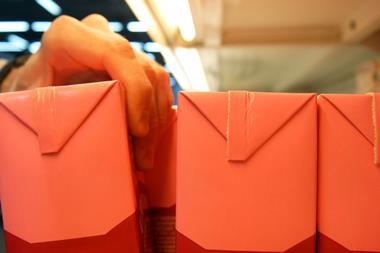
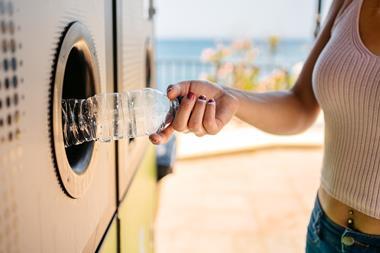
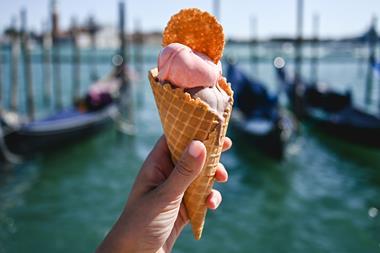
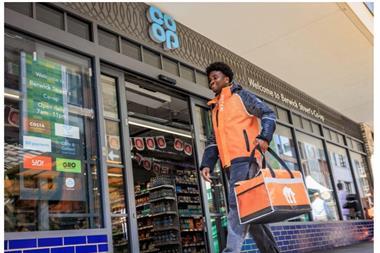

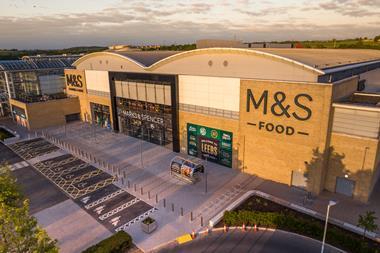

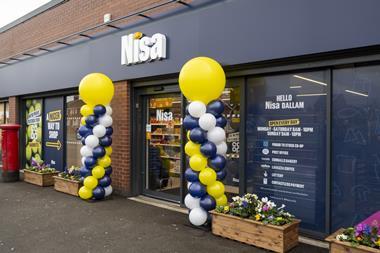

No comments yet